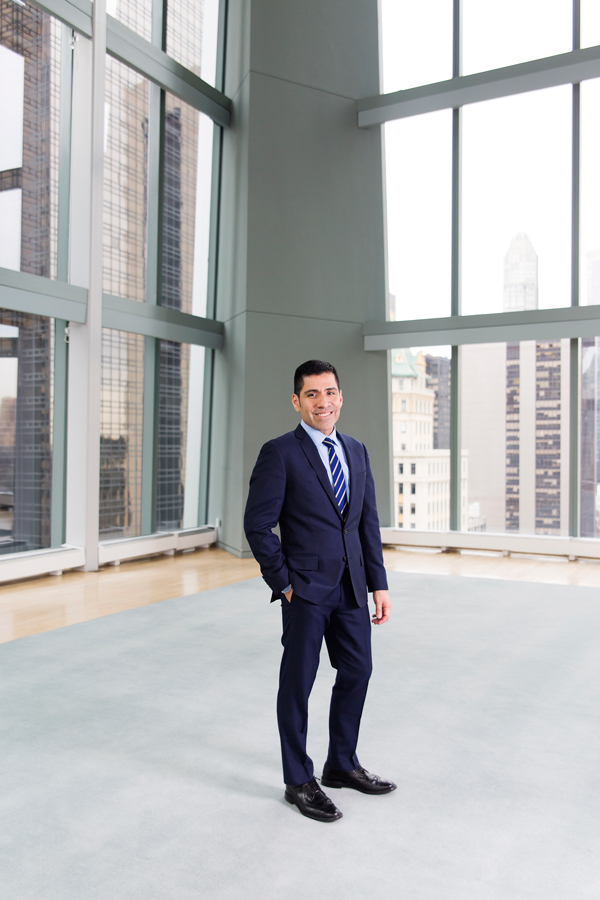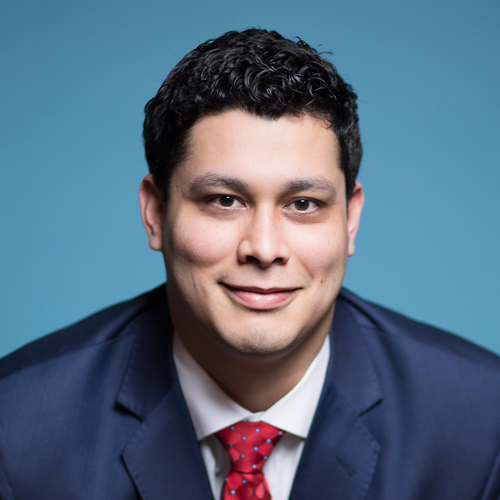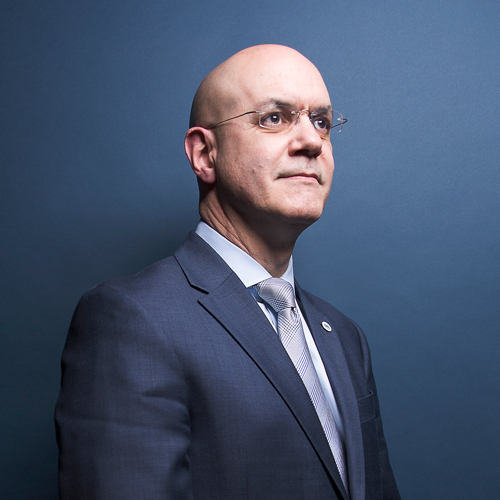
Growing up the youngest of four children in a modest two-bedroom house in West Covina, California, Frank Martinez never anticipated that his future would involve a career in law, let alone leading legal affairs for luxury conglomerate LVMH.
His talent for music lead him to pursue degrees in vocal performance at the Indiana University School of Music–Bloomington, and later at the University of Massachusetts–Amherst. Martinez, however, wanted a backup plan in case a career in opera didn’t pan out, so he turned to television.
“I have to admit, I did not come to law by any altruistic motivation, nor by a lifelong dream of being a lawyer,” he says. “It was the early ‘90s, and the TV series L.A. Law was popular. The practice of law looked sexy and promising, and after all, the degree only took three years.”
Although a legal career wasn’t his original dream, a proven work ethic—for which he credits his parents—and impressive, diverse legal experience helped pave the way to his current position as employment counsel for the LVMH Group.
Martinez discovered his passion for employment law in law school but began to diversify his skills after opening his own solo practice in 2004. “I took work in whatever form it came, including both company- and employee-side representation, executive compensation, short-term in-house assignments, and investigative temp work,” he says. Of all these different types of practice, Martinez found that representing employees gave him a fresh perspective. “I quickly learned that neither the plaintiff nor defense employment bar has a monopoly on truth or, for that matter, professionalism.”
“As a global leader in luxury products, people expect the highest standards, and we work hard to maintain that reputation as an employer, a corporate citizen, and in all legal matters.”
Martinez worked with several large firms including Littler Mendelson, Wilson Sonsini Goodrich & Rosati, and Proskauer Rose. After spending several years working on both coasts, Martinez realized the big-firm life wasn’t for him. “It was stressful, and I bristled under the system that put a premium on hours-based work as opposed to efficiency.” Nevertheless, in retrospect, he attributes much of his later success to his years spent logging the hours. In 2000, he joined BMG Music, where he eventually became vice president of legal and business affairs. More recently, Martinez served as interim associate general counsel for L’Oréal USA and interim counsel of human-resources legal for Pitney Bowes.
Noting the difference between a role as in-house counsel versus an associate for a big firm, Martinez says that working in-house feels more like being a business partner for the company. “What comes with time as an in-house lawyer is a more flexible communication approach, necessary for an inside business partner,” he says. “You need to get the legal message across while continually making nuanced adjustments to account for certain business realties, cultural differences, and clients of varying degrees of style, expertise, and temperament.”
Martinez joined LVMH in January 2014. With 70 separate houses in the LVMH Group, he manages employment-law compliance for about 20 distinct US companies. He spent his first several months getting acquainted with each one of his clients and observing the group culture while surveying its employment practices. “Each of our maisons is its own corporation with distinct management structure and culture supporting the particular products that define that company and its brand. Consequently, each has its own employee policies, practices, and management.” He admits he’s constantly changing gears, depending on which one of the companies he’s advising.
“There is no one-size-fits-all at LVMH,” he notes, although each of the brands must work within the LVMH Group standards and expectations. On top of this is the fast-changing landscape of employment law, which, while traditionally regulated heavily at the federal level, has seen a substantial increase in regulation at the state and local level in the past few years. This has also led to an expansion in the types of claims brought by the plaintiffs’ employment bar.
Balancing the combination of increased regulation in employment law with LVMH Group’s decentralized corporate structure is what Martinez considers the biggest challenge in his current role. On the other hand, it also allows him the opportunity to bring to bear his diverse experience to develop practical, efficient, and creative solutions to meet the needs of the varied LVMH Group brands.
LVMH strives to keep its employment standards on par with its iconic luxury brands. “As a global leader in luxury products, people expect the highest standards, and we work hard to earn and maintain that reputation as an employer, a corporate citizen, and in all legal matters,” he says. “Sometimes we can be seen as a target because we are such a visible company.”
LVMH Moët Hennessy Louis Vuitton Inc
Headquartered: Paris, France
Founded: 1987
Number of Employees: 120,000 worldwide
Annual Revenue: 30.6 billion Euro (2014)
About: Moët Hennessy Louis Vuitton, better known as LVMH, is a multinational luxury-goods conglomerate, formed by the merger of fashion house Louis Vuitton with Moët Hennessy. Worldwide, the company controls around 60 subsidiaries that each manage a small number of prestigious brands.
Given this reality, Martinez promotes a “proactive approach to employment law through clear employee policies, application of consistent and fair employment practices, and regular training of managers and employees.” Martinez has already implemented new training programs, broadened counseling support, and drafted numerous new employee policies. “With these tools,” he continues, “managers and HR are prepared to respond appropriately to employee-relations issues, and employees can expect clear and consistent employment practices.”
Looking back at his short time with LVMH, he believes his biggest accomplishment has been the relationships he has built within the Group. “If they don’t trust me, they won’t come to me,” he says. “I think a mistake a lot of lawyers make is only offering the legal side of things, but not necessarily providing solutions from a business standpoint.”
And while lawsuits are a reality at every major US company, with his approach, Martinez helps make LVMH a great place to work while simultaneously maintaining its excellent reputation. “A steady engagement in best-employment practices,” he says, “is the best tool for fostering a great work environment and upholding the reputation of any company.”

